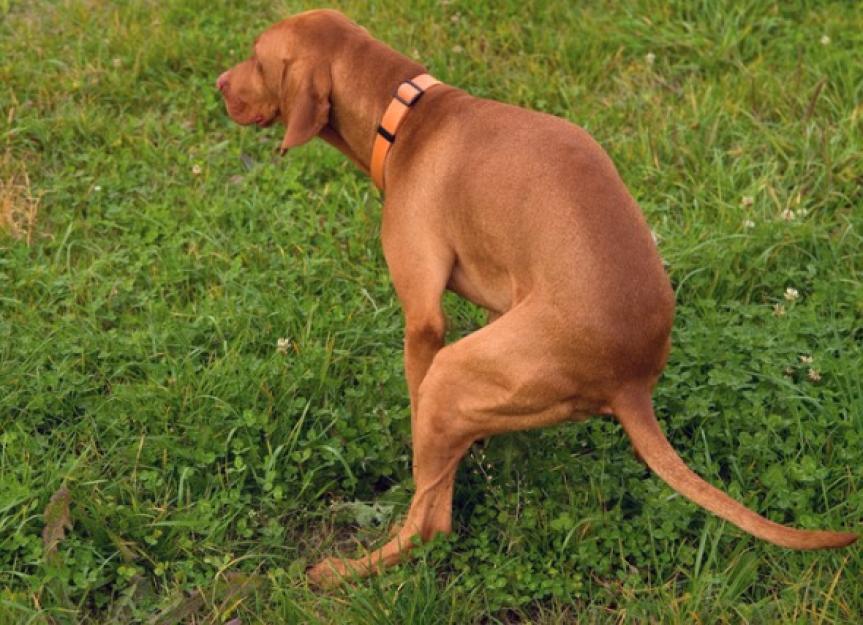The answer to this question depends on a number of factors, including the type of food eaten, the amount of food eaten, and the individual dog’s metabolism. Generally speaking, however, most dogs will defecate within two to four hours after eating a meal.
How long after a dog eats does he go poop? This is a question that many pet owners ask. The answer may vary based on the individual dog’s digestive system and metabolism, but generally speaking, most dogs will need to relieve themselves within 30 minutes to 2 hours after eating.
Some may even need to go more frequently if they have eaten a large meal or consume a lot of high-fiber foods. If your dog seems to be straining or having difficulty passing stool, consult your veterinarian for help in determining the cause and finding the best course of treatment.
Do Dogs Poop After Every Meal
It’s no secret that dogs poop. A lot. In fact, it’s one of the things that most people think about when they think about owning a dog.
But how often do dogs actually poop? And do they always poop after every meal?
The answer to both of these questions is a resounding “no”.
Just like humans, dogs’ digestive systems vary from individual to individual. Some dogs may need to go several times a day, while others may only go once or twice. And as for pooping after every meal, that’s simply not how it works.
Dogs typically digest food much more quickly than we do, so there’s no need for them to relieve themselves immediately after eating.
Of course, there are always exceptions to the rule. If your dog seems to be straining or having difficulty passing stool, it could be a sign of an underlying health issue and you should consult your vet right away.
Otherwise, just enjoy watching your furry friend enjoy their meals – and don’t worry too much about the occasional accident!

Credit: www.petmd.com
How Long After a Dog Eats Does He Need to Go Poop
Assuming you are asking how long after a dog ingests food until they defecate, the answer is variable. Some dogs may poop within minutes while others may take a few hours. Factors that can influence this time frame include the type of food consumed, how much was eaten, and the individual dog’s digestive system.
For example, if a dog eats a large meal or one that is high in fat content, it may take them longer to digest and have a bowel movement than if they ate a smaller meal of leaner proteins. If your dog has not defecated within 24 hours of eating, then you should consult with your veterinarian as there could be an underlying health condition causing constipation.
What are the Signs That a Dog Needs to Poop
There are a few signs that your dog may need to poop. These include sniffing around or circling, squatting, restlessness, and panting. If your dog is having trouble pooping, you may also notice him straining or making grunting noises.
If your dog is constipated, he may produce hard, dry stools or no stool at all. Blood in the stool is another sign of constipation.
Why is It Important for a Dog to Poop Regularly
There are a few reasons why it is important for dogs to poop regularly. First, regular bowel movements help to keep the digestive system running smoothly. When everything is working properly, the dog can better absorb nutrients from their food and stay healthy overall.
Additionally, Pooing helps to get rid of waste products that can build up in the body and cause problems. Finally, regular pooping also keeps the anal sacs from becoming full and uncomfortable. These sacs are located near the anus and secrete a foul smelling substance that helps mark territory.
If they become too full, they can rupture and cause pain or infection.
What Happens If a Dog Doesn’T Poop Regularly
If a dog doesn’t poop regularly, it could be constipated. Constipation in dogs can be caused by a variety of things, including not getting enough fiber in their diet or not drinking enough water. If your dog is constipated, they may strain to poop, have hard stools, or not be able to poop at all.
If your dog is having any of these problems, you should take them to the vet. The vet will likely give your dog some laxative medicine to help them poop.
Are There Any Health Risks Associated With Not Pooping Regularly
There are a few health risks associated with not pooping regularly. These include:
1. Constipation: When you don’t poop regularly, your stool can become hard and dry, making it difficult to pass.
This can lead to constipation, which can be uncomfortable and even painful.
2. Impacted feces: If constipation is severe, the stool can become impacted in the rectum and colon. This can cause serious pain and may require medical treatment.
3. Rectal prolapse: In extreme cases of constipation, the rectum can actually prolapse, or fall out of the anus. This is a serious condition that requires immediate medical attention.
After how Long does a Dog Poop after Eating?
Conclusion
How long after a dog eats does he go poop? This is a common question that many pet owners have. The answer may vary based on the individual dog’s digestive system and how much he ate.
However, most dogs will need to defecate within four to five hours after eating a meal.